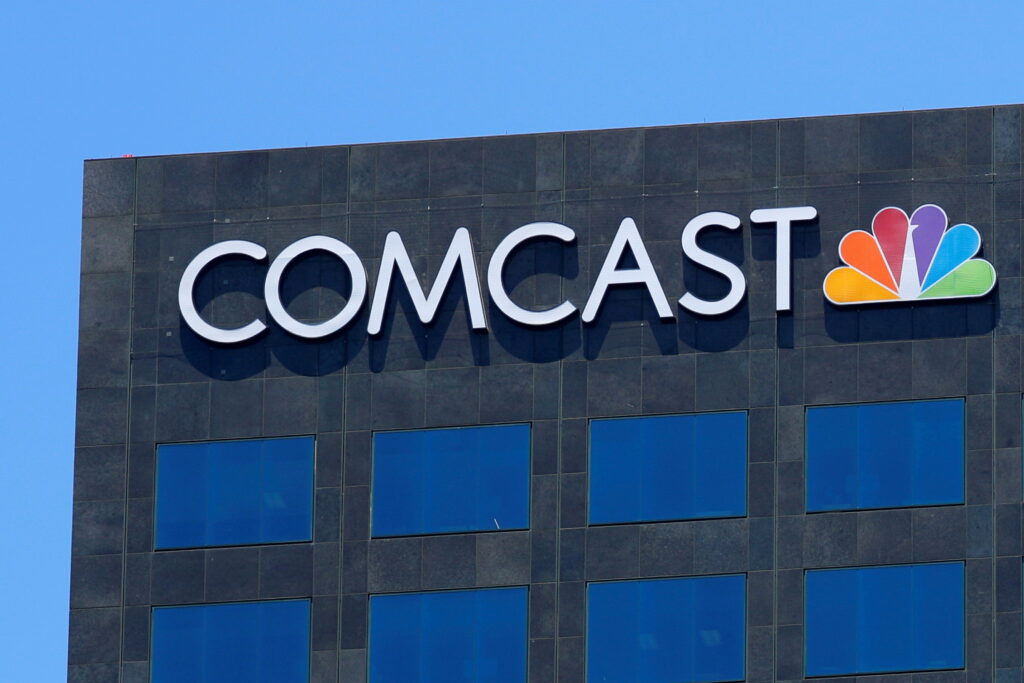(Reuters) -Comcast Corp’s quarterly revenue edged past estimates on Thursday, helped by sustained demand for its broadband services and higher theme park attendance, while investors await an update on the media giant’s plans to replace the head of NBCUniversal.
The company’s total revenue fell 4.3% to $29.69 billion in the quarter, but beat analysts’ average estimate of $29.30 billion, according to Refinitiv data.
The company’s shares rose 2% before the bell.
Comcast (NASDAQ:CMCSA) said on Monday NBCUniversal’s chief executive, Jeff Shell (LON:RDSa), had been fired for sexual harassment after an investigation found evidence that corroborated a female employee’s complaint.
Shell, a two-decade Comcast veteran who took over the top role in 2020, oversaw businesses including the Universal film studio, Peacock streaming service and Universal’s theme parks at a time when the pandemic had shuttered all forms of in-person entertainment.
In its first earnings under a new reporting structure that includes NBCUniversal in the content and experiences segment, the company reported a 9.5% fall in revenue in the unit to $10.26 billion in the first quarter.
In the same quarter last year, the business had gained from Olympics broadcast.
Meanwhile, advertising revenue still remains pressured as elevated inflation levels continue to weigh on the market. Ad revenue in content and experiences fell 38.8%.
Revenue at Peacock rose over 45% compared with a year earlier. Paid subscribers increased by about 2 million in the first quarter from the fourth quarter.
However, adjusted losses from the ad-reliant platform widened to $704 million from $456 million a year-ago as Comcast continues to invest heavily in content.
Theme parks revenue climbed nearly 25%, thanks to a rebound in attendance at its parks overseas and the lifting of COVID curbs in China.
Comcast’s connectivity and platforms revenue, which includes the cable business and most of its Sky unit, reported a marginal loss in revenue, partly due to sustained cord-cutting but that was offset by strong demand from large enterprises.
Comcast gained 5,000 broadband customers in the March quarter, while Factset had estimated a loss of 20,000 users.
The metric is widely watched by investors. Competition from wireless carriers such as T-Mobile US (NASDAQ:TMUS) Inc and Verizon Communications Inc (NYSE:VZ), which offer 5G home-internet service that users can choose instead of broadband connections, has pressured Comcast’s business.
Overall, net income attributable to Comcast rose 8% to $3.83 billion in the quarter.
Excluding items, the company earned 92 cents per share.



